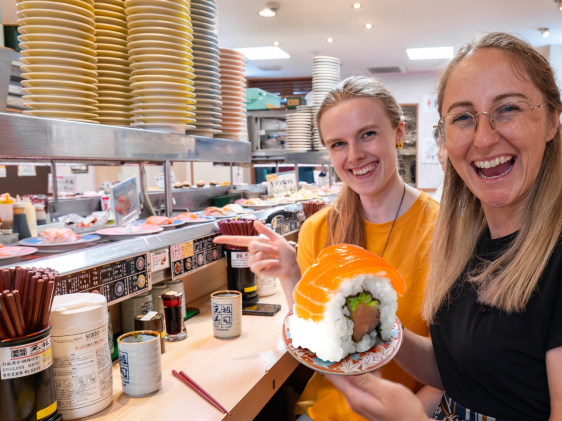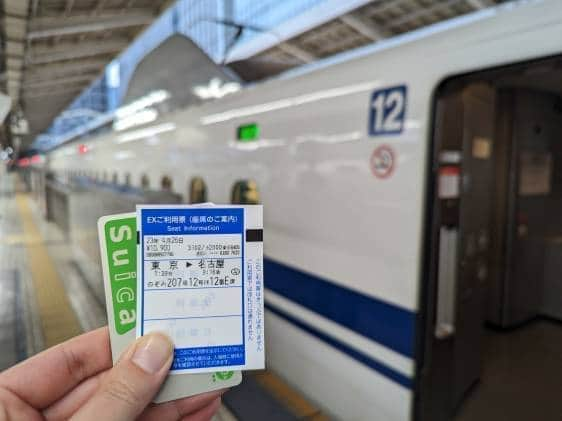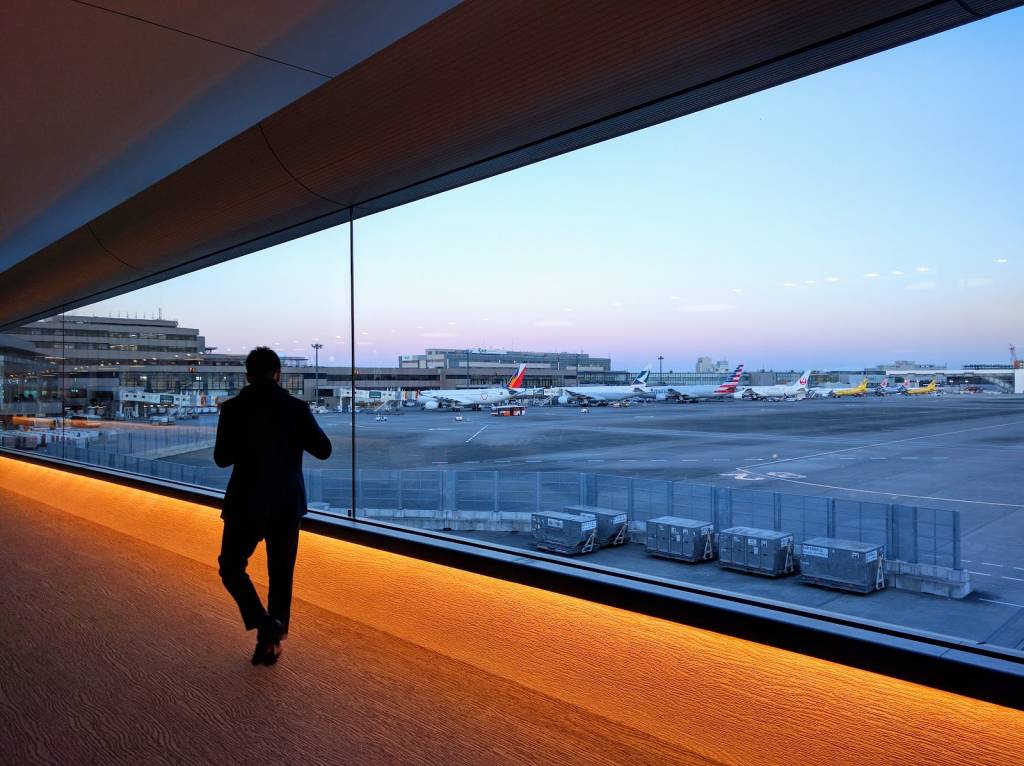When I first moved to Tokyo, I was living on ¥1,000 a day while renting half a room in the cheapest-of-cheap share houses. I didn’t care though—this is one of those special few cosmopolitan cities where you can experience the best of it for next to nothing, if you know where to look. With that in mind, I’ve compiled a list of low-cost and free things to do in Harajuku: pop culture hub and stomping ground of Tokyo’s most fashionable trendsetters.
Pro tip: Experience fashion, CUTENESS (kawaii) and more on a guided tour of Harajuku.
Release your inner street-style photographer
Harajuku is home to most of Japan’s wildly fashionable (and sometimes just wild) brands. It’s been a center for various subcultures and looks for decades, and remains a top place to spot new ones.
Roam the back streets on either side of Omotesandō, check out Takeshita Street or head to Yoyogi Park. Bring your best camera, because this is one of the few places in the world where your photo subjects will (probably) gladly pose without demanding spare change — you just need to ask nicely.
Pro-tip: Shashin totte mo ii desu ka? (Is it okay if I take a photo?) is a good phrase to memorize ahead of your day out.
You may see people in dresses resembling something out of 18th-century France, “visual kei” punk-rock glam, or rockabilly styles from the 1950s (complete with boomboxes playing appropriate American rock music). Sundays are when Harajuku’s magic really happens.
Dress like a Harajuku girl (or boy)

What better way to immerse yourself in Japan’s subcultures than by joining in the fun? There’s only one rule when dressing for Harajuku: be creative and open-minded! Mix and match your favorite styles, go bold, and don’t hold back.
There are well-defined styles (like the classic Gothic Lolita look), but that doesn’t mean you have to pick just one. Feel free to mix different styles and go all out—there’s so much you can do in terms of accessories, make-up, colors, layers, DIY customization, etc. Be ready to say “cheezu!”.
Join the crowds on Takeshita Street

If you find yourself suffering from sensory overload and cuteness overload, odds are you’ve found yourself on Takeshita-dōri (“dōri” meaning street in Japanese). This famous pedestrian-only street is known for its trendy boutiques, game centers and a super Daiso store, which is an excellent chain of ¥100 stores.
Be sure to grab a Harajuku crepe or one of the other local sweet treats as you stroll…
Try the street food snacks of your dreams

Harajuku is famous for fashion, but it’s also got a rep sweets and other street foods — including some very Harajuku-appropriate colorful treats. Crepes are a Harajuku classic, served with any number of fillings but ideally with lots of whipped cream. Or head to Totti Candy Factory for whirls of rainbow candyfloss and Zaku Zaku for the crunchiest of cream puffs, filled with custard direct from Hokkaidō.
Read more about photogenic Harajuku snacks.
Escape to a spiritual oasis

Being in a dense and over-stimulating city like Tokyo can wear you down, but you can rejuvenate with a visit to Meiji Shrine (Meiji-jingū). The entrance to this super famous shrine is right by Harajuku Station. You’ll pass through a series of torii (shrine gates) along the wooded approach to the shrine complex.
Once you’re inside, you can cleanse your hands at the purifying water fountain (as a mark of respect to the shrine’s Shintō customs). Then, if you like, you can throw a coin into the offerings box — the amount is totally up to you — deeply bow twice, make a wish, clap your hands twice, and bow once more. Remember to take your hat off first if you’re wearing one. Take your time at the shrine, and bear in mind that it’s a place of great respect for many Japanese people.
Crash a traditional wedding

Just kidding. Please do not actually crash a traditional Shintō wedding ceremony if you witness one while visiting Meiji Shrine. There are on average 15 weddings a day, so the chances of spotting one are high. The procession is quite a sight to see: a parade of two priests, two shrine maidens, the couple, and a long trail of friends and family. Tourist or local, you’ll be blown away by the color and beauty of it.
Just make sure to stay out of the way and appreciate it from afar!
Explore the local art scene

Harajuku’s creativity extends far beyond the canvas, but it can be found on a few of those as well. There are a surprising amount of small galleries dotted around the area, including the not-to-be-missed Design Festa Gallery. This one-of-a-kind gallery hosts independent artists from Japan and abroad in a multitude of small exhibition spaces. Within the space there is also a cafe and a very reasonable okonomiyaki restaurant.
For some more traditional art, the Ota Memorial Museum of Art displays Japanese ukiyo-e (woodblock prints), including some works by big names like Katsushika Hokusai and Utagawa Hiroshika. There is no permanent exhibit but they create new exhibitions every few months (admission depends on the exhibition, but is usually around ¥1,200).
Jog/yoga/picnic at Yoyogi Park

Tokyo’s Yoyogi Park is free to use as you wish, which is perfect if you want to exercise but can’t afford an expensive gym membership. Run along the paths, salute the sun on the lawns, or just relax with a picnic.
Wander along Cat Street

Cat Street is lined with quirky, though not necessarily cheap, fashion stores and eateries. The Roastery by Nozy Coffee serves delicious espresso with a cool, relaxed vibe. Trunk Hotel — off a side street just before the kids play park — is also a great place for a coffee/beer/cocktail break.
The meandering pedestrian lane actually follows the path of the Shibuya River (which still runs in a concrete channel under the street). The river was channeled and covered as part of the massive “put concrete over everything” construction drive before the 1964 Olympics. Look for the entrance to the right of the landmark Omotesandō Gyre building.
Check out Tokyu Plaza

As well as awesome views of the surrounding area, you can sometimes catch a glimpse of Mount Fuji from the roof garden at “Omohara” Plaza, also known by its full name as Tokyu Plaza Omotesando Harajuku. This is our recommended spot for watching the sunset. And while we wouldn’t normally recommend a Starbucks, there is one up here.
The street entrance to the shopping center, with its angled mirrors, is also an excellent photo spot.
Recycle your clothes

It’s not just free, it might even add a few extra yen to your wallet. If you are in town for a while and are really serious about getting hard cash for your clothes, think about applying to be a vendor at the Yoyogi Flea Market. Vendor applications cost around 40USD, and although schedules tend to be irregular, during peak seasons the “Free Market” can provide space for up to 800 vendors. Read more about Tokyo’s flea markets and consider dropping by a few to browse for bargains too.
Catch a summer festival

Summer is yukata time in Japan, and what better place to show off your threads than the streets of Harajuku? Enjoy the traditional Tokyo experience of donning a yukata with friends for the Jingu Gaien Fireworks Festival.
Another summer tradition is the annual Harajuku Omotesando Genki Matsuri Super Yosakoi dance parade. This colorful and energetic mix of traditional and modern Japanese dance — performed by around 90 teams totaling some 5,000 dancers — attracts over 800,000 locals and tourists every year.
How to get to Harajuku and where to find more information
Access: Harajuku is easily accessible from JR Harajuku Station (on the JR Yamanote Line) or Meiji-jingumae Station on the Fukutoshin Line.
More information: We have an introductory video, podcasts and other resources to help you get your head around all the free things to do in Harajuku!
Keen to explore other popular parts of Tokyo? Here are our recommendations for things to do in Shinjuku and things to do in Shibuya.
This post was first published in December 2014 and last updated in May 2022.
































